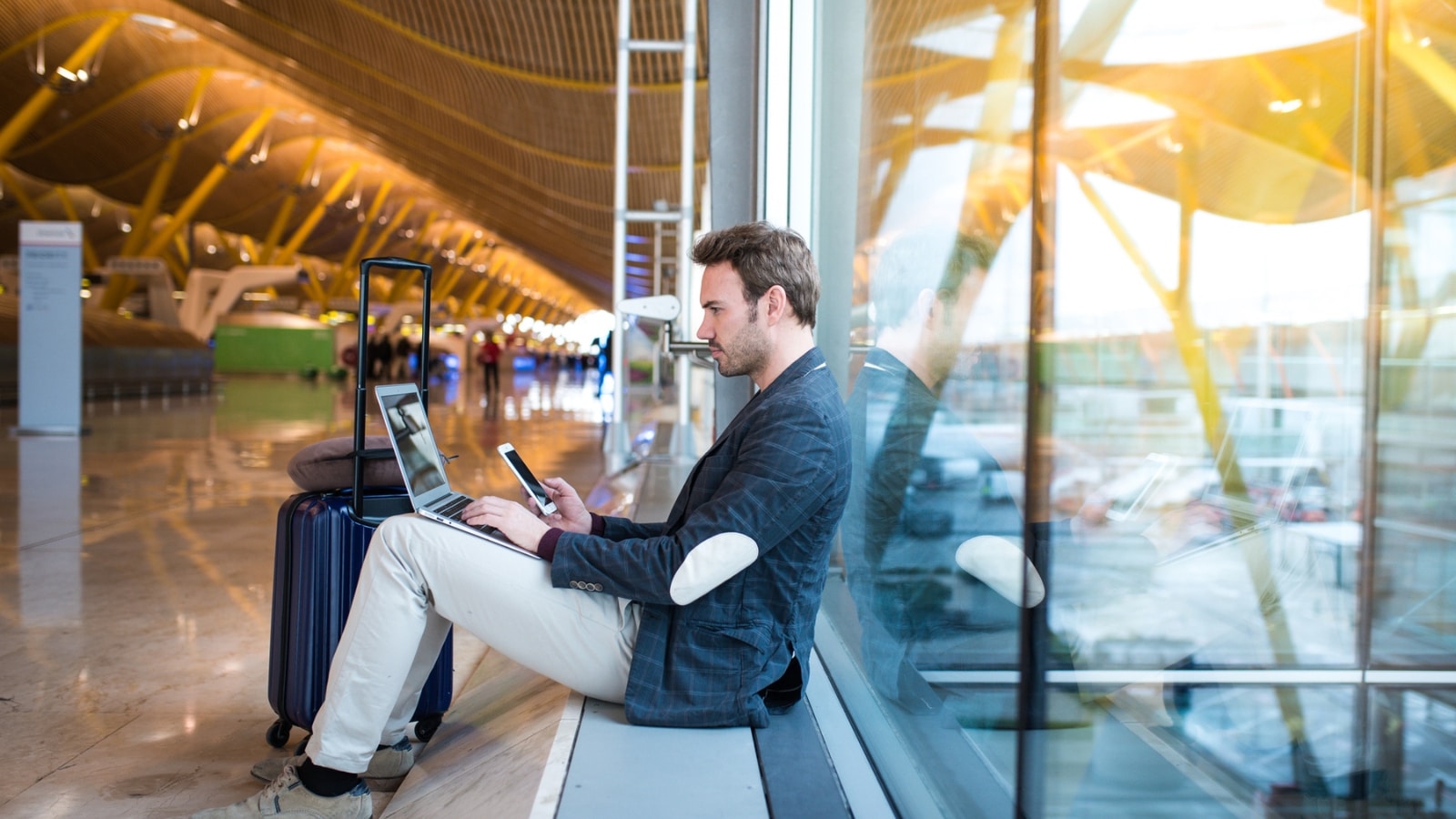Traveling presents not only the excitement of exploration and new places, but also the challenge of safeguarding your devices and data. Before you connect to foreign WiFi networks and swap SIM cards, use these simple tips to protect your digital identity.
Trevor Cooke, Earthweb’s online privacy expert, offers his top three tips for safeguarding your digital identity while on the move.
Secure Your Devices
Change your passwords before you travel and when you return. Use strong, unique passwords for each of your devices and accounts, and consider using biometric authentication methods such as fingerprint or facial recognition. Additionally, enable remote tracking and wiping features on your devices in case they are lost or stolen during your travels.
Update Your Devices and Software
Before traveling, ensure that all your devices and software are up to date with the latest security patches and updates. This helps to safeguard against known vulnerabilities that could be exploited by cyber attackers.
Invest In A VPN
When traveling, you’ll inevitably connect to numerous new Wi-Fi networks in airports, hotels, cafes, and restaurants. However, these open Wi-Fi channels can pose a significant security risk, as cybercriminals often exploit them to intercept sensitive data.
Trevor advises, ‘One effective way to mitigate this risk is using a Virtual Private Network (VPN) plugin on your device. Not only does a VPN encrypt your internet connection, shielding your data from prying eyes, but it also allows you to bypass geo-restrictions, granting access to your favorite shows and movies regardless of your location. That means you can still watch all your favorite Netflix shows, no matter where you are!’
While many VPN services require a monthly subscription fee, their added protection far outweighs the potential cost of data breaches and identity theft in the long run.
Backup Your Data Before You Go
In bustling tourist destinations, the risk of falling victim to pickpockets is ever-present, with electronic devices like smartphones being prime targets. To preemptively protect your valuable data, ensure that all your information is securely backed up on devices left at home. This precaution ensures that even if your device is stolen, your data remains safe and accessible.
Trevor says, ‘Also, be sure to maintain regular backups during your trip using a cloud storage service to safeguard cherished travel memories like those all-important photos.’
Prepare For Two-Factor Authentication
While navigating through an additional step to access your accounts may seem inconvenient, two-factor authentication is an invaluable defense against cybercriminals. Picture it as akin to a bolt on a door in addition to a lock.
When traveling, the key is ensuring seamless access to these security features while abroad. ‘Before departing, ask yourself: Do I have all the necessary devices to access my accounts?’ advises Trevor. ‘If you’re going to swap out your SIM card, you’ll also need to update the phone number associated with 2FA. Otherwise, you may get locked out.’
Turn Off Bluetooth And Wi-Fi When Not In Use
It’s convenient to keep your Bluetooth and Wi-Fi on, but this can make your devices vulnerable to cyber attacks. Sometimes, Bluetooth attacks come in the form of cybercriminals sending things to your device, from spam advertisements to malware.
‘A more dangerous form of Bluetooth cybercrime is “Bluesnarfing,” where attackers can take data from your devices such as text messages and emails. They can then use this data to hack into your accounts,’ says Trevor. ‘Cyber criminals have also found ways to create a backdoor into accounts through a process called “Bluebugging.” Because of these threats, it’s essential to keep devices in discoverable mode only when you actually want to pair your device.’
Similar attacks can be made on open Wi-Fi networks, so switching off Bluetooth and Wi-Fi is necessary before you travel.
Avoid Public Computers and Charging Stations:
Exercise caution when using public computers or charging stations, as they might harbor malware or skimming devices. Think twice about using direct USB powering stations at the airport.
Additionally, opt for charging your phone using your personal computer or a direct-to-wall-socket charging port instead of relying on unfamiliar devices, like hotel docking stations. Connecting your device to unknown computers or devices could expose it to malicious software.
Refrain from accessing sensitive accounts or input personal data on these systems. Consider using your own portable charger to mitigate risks.
Use The Hotel Safe For Devices
While most staff aren’t going to rummage through your things, criminals known as “door pushers” walk through hotel hallways looking for unlocked rooms to loot. Keep your valuables secure by taking advantage of the hotel safe. Only hotel management should have a universal key to unlock it, just in case you forget the code you’ve created.
‘It’s common practice for users to have a physical note on their computer with passwords on it,’ Trevor adds. ‘This is fine at home, but take those off while you travel in case of theft. It’s not fun to have to replace stolen computers or phones, but it’s even worse to have to deal with the repercussions of a stolen identity.’
Monitor Your Accounts
Monitor your bank and credit card statements and online accounts regularly for suspicious activity. Once you’ve returned home, revise any credit card charges up to 6 months past your initial trip. Report any unauthorized transactions or unusual behavior to your financial institution immediately.
Margarita Ibbott is a travel and lifestyle blogger. She blogs about travel in Canada, the United States and Europe giving practical advice through restaurant, hotel and attraction reviews. She writes for DownshiftingPRO.com and other online media outlets.
